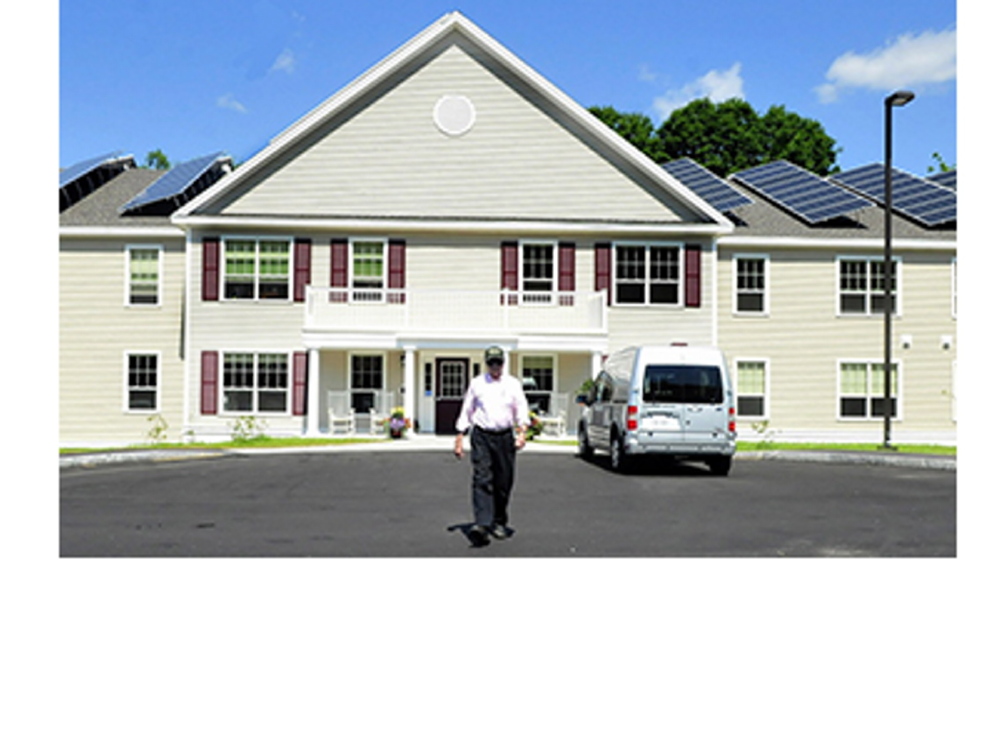Gov. Paul LePage has promised to veto the $15 million senior housing bond bill passed by the Legislature last month, telling the Maine Public Broadcasting Network that the bill would set “a real dangerous precedent.” He said housing bonds should be issued through the Maine State Housing Authority, not the state itself.
The housing authority, in fact, has done just that, using its own bonding power as well as a 2009 general obligation bond to help build about 120 units of affordable senior housing in each of the last six years.
Trouble is, that’s not nearly enough to meet the demand driven by Maine’s rapidly growing population of seniors and its aging housing stock, and to keep Maine seniors in their own homes and a part of their chosen community.
Lawmakers should override the governor’s veto, so that headway can be made this year in helping more seniors remain independent.
With so many Mainers reaching retirement age, that’s becoming difficult — more than 9,000 Maine seniors are on a waiting list for affordable, subsidized housing.
Largely, these seniors are left in houses that are too large for their needs and too expensive to heat and maintain.
They are left in stressful, isolating living conditions that drain what little savings and income they have. They are prone to falling and other injuries. They have a higher rate of hospitalization and they more often eventually need assisted living or nursing home care.
And with affordable housing scarce, moving for these seniors usually means going away from the community they’ve lived in for years.
Absent a more substantive effort, the waiting list is going to grow. Twenty-nine percent of Mainers are baby boomers, and by 2030, when the youngest boomers hit retirement age, a full quarter of the state is expected to be 65 or older.
The housing authority, in a study it conducted in 2011, predicted that, even if it continues to build senior housing at its current rate, Maine still would need an additional 8,200 units by this year.
Another study, from the Maine Affordable Housing Coalition, is more dire — the state needs 10,000 units now, the coalition says, and will need more than 15,000 by 2022.
That kind of development will never take place without significant subsidies for developers, and those subsidies won’t be available without a significant outlay of public money.
Originally, the senior housing bill — sponsored by House Speaker Mark Eves, D-North Berwick, and Sen. David Burns, R-Whiting — called for a $65 million bond to build up to 1,000 units of senior housing across 40 communities covering all 16 counties.
The bill was whittled down to $15 million during legislative negotiations over the size of the bond package.
That amount is certainly within the state’s ability to borrow without harming its bond rating.
And while it’s not nearly the investment the state needs, it will allow more Maine seniors to live their final years closer to how they’d like.
Send questions/comments to the editors.



Success. Please wait for the page to reload. If the page does not reload within 5 seconds, please refresh the page.
Enter your email and password to access comments.
Hi, to comment on stories you must . This profile is in addition to your subscription and website login.
Already have a commenting profile? .
Invalid username/password.
Please check your email to confirm and complete your registration.
Only subscribers are eligible to post comments. Please subscribe or login first for digital access. Here’s why.
Use the form below to reset your password. When you've submitted your account email, we will send an email with a reset code.